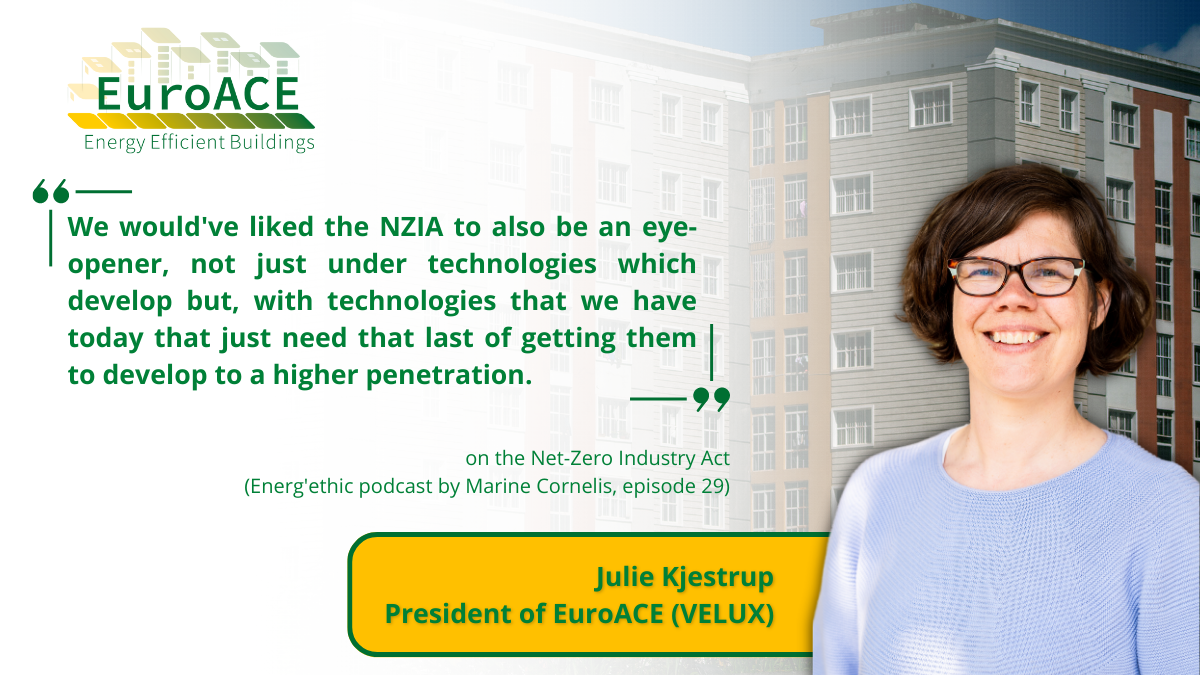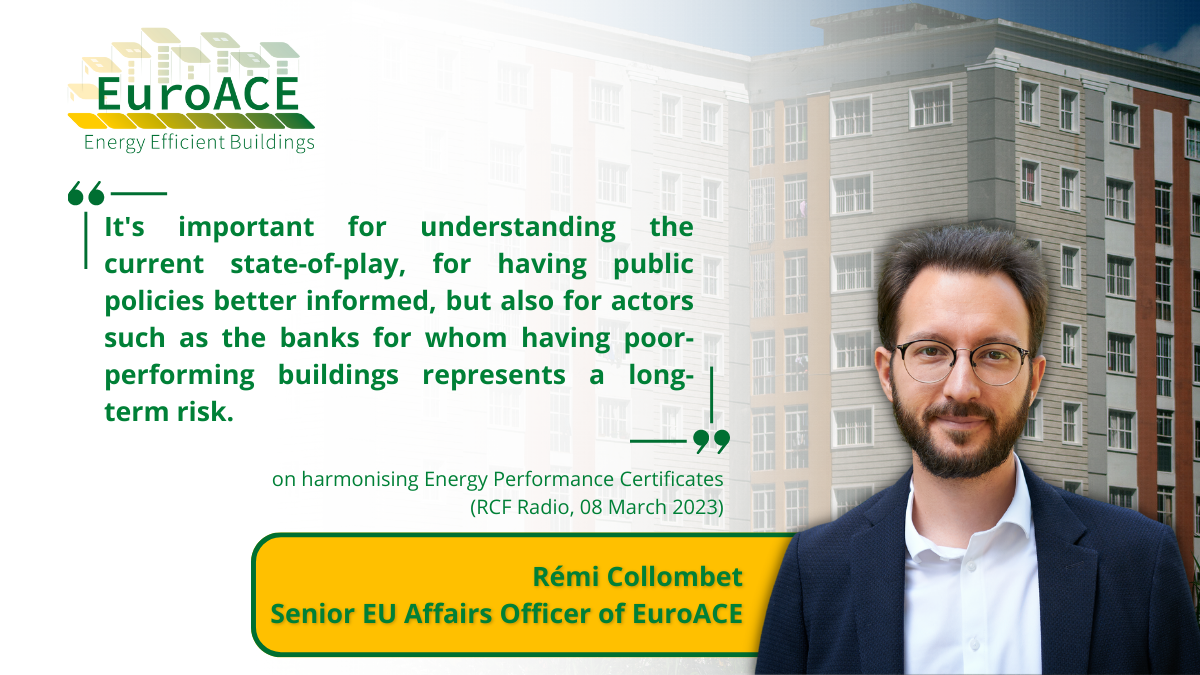We are starting the new year off featuring as the first article in the EUSEW 2024 new blog series.
Read our contribution below:
Europe’s industrial revolution for efficient buildings: shaping the future
In the midst of a crucial electoral season, EU citizens will cast their votes to shape Europe’s future. In pursuit of a more sustainable and competitive Europe, the energy efficient buildings industry stands at the forefront of change. As over 85% of today’s buildings will still be standing in 2050, the revised Energy Performance of Buildings Directive (EPBD) has the potential to boost the efforts for the renovation of buildings, enhancing competitiveness and bolstering resilience in the process.
The multiple benefits of energy efficient buildings for the economy
Efficient buildings hold the key to a brighter future. At the building level, energy efficiency solutions significantly reduce energy consumption, resulting in lower energy bills. These solutions also offer greater comfort, improved health, and increased productivity, all of which have a substantial positive impact on the European economy.
Europe has long championed energy efficiency solutions for buildings to play their part in climate mitigation. Yet, as we approach the critical point of massively accelerating energy renovations, upscaling energy efficiency solutions, hiring and training more workers, a holistic and dedicated approach to the efficient buildings industry is needed.
Investing in energy renovations and empowering the next generation of skilled workers
Behind every successful industry are skilled workers, and the energy efficient buildings sector is no exception. Training and expanding the workforce are top priorities. Investing in energy renovation of buildings can create an average of 18 jobs in the EU for every €1 million spent. These jobs stimulate local economic activity and pave the way for a sustainable future.
To drive this transformation further, the provision of affordable funding for energy renovations is key. Additionally, improving collaboration between the European Commission, EU regions, and cities can streamline the process and unlock private finance, making energy renovations more accessible to all. Funding is available, e.g. via the Recovery and Resilience Facility and the newly created Just Transition Fund but it must be channelled towards the sectors which can drive the green transition.
Decarbonising Europe
Above all, the industry is ready to decarbonise Europe. Buildings account for one-third of the EU’s greenhouse gas emissions, making their decarbonisation a top priority. Existing energy efficiency technologies can be used to fully decarbonise homes and workplaces, paving the way for a greener and more sustainable future. The “Buildings Breakthrough” launched at COP28 brings together countries from all over the world with the aim of decarbonising the built environment.
Digitalisation: revolutionising how we create and use buildings
Digitalisation is also playing a pivotal role in the transformation of buildings. Technologies like digital twins, energy-efficiency metering technologies, submeters, and building automation control systems are revolutionising the way we gather data and optimise building operations but also how we design buildings. They also empower citizens and businesses to become active participants in the energy market, generating and storing energy on-site. With more renewable energy being produced in Europe, digitalisation will be key to support its roll-out.
Way forward: Europe’s industrial revolution for efficient buildings
The energy efficient buildings industry is at the forefront of a green revolution in Europe. Its commitment to sustainability, job creation, and economic growth makes it a driving force for positive change. By supporting energy efficiency cleantech, developing industrial policies, and investing in energy renovations, we can all contribute to a brighter and more sustainable future for Europe. For this, we need:
- a dedicated industrial policy for energy efficient buildings
- swift and complete implementation of adopted EU legislation
- an Energy Efficiency Academy to support upskilling and reskilling of workers

 Our Senior EU Affairs Officer Rémi Collombet was interviewed for the programme “Espace Europe” of RCF Radio ahead of the vote in Plenary on the Energy Performance of Buildings Directive proposal from the ITRE Committee.
Our Senior EU Affairs Officer Rémi Collombet was interviewed for the programme “Espace Europe” of RCF Radio ahead of the vote in Plenary on the Energy Performance of Buildings Directive proposal from the ITRE Committee.